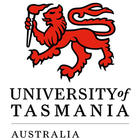Bachelor of Nutrition Science
Bachelor of Nutrition Science
Nutritionists provide advice on food and its impact on health, helping improve community wellbeing on everything from educational outcomes to life expectancy. Employed across community healthcare settings, they have the expertise to provide evidence-based consultancy services. By studying a Bachelor of Nutrition Science, you’ll develop the skills to provide evidence-based…
Categories
COURSE DESCRIPTION
Nutritionists provide advice on food and its impact on health, helping improve community wellbeing on everything from educational outcomes to life expectancy. Employed across community healthcare settings, they have the expertise to provide evidence-based consultancy services.
By studying a Bachelor of Nutrition Science, you’ll develop the skills to provide evidence-based recommendations, as well as work on policy and research to improve health outcomes.
You’ll learn from experienced NGO and industry partners, including Neighbourhood Houses Tasmania, TasCOSS, Tasmanian School Canteens Association, and more. To make sure you graduate job-ready, you’ll undertake a minimum of 80 hours professional experience placement as part of a team with our industry partners.
Studying Nutrition Science will prepare you for a variety of careers, including as a nutritionist, in health promotion and education, or coordinating community food solutions. As a graduate of this degree, you may be eligible for registration with the Nutrition Society of Australia (NSA) as an Associate Nutritionist (ANutr).
Dietetic Pathway
If you are interested in working with individuals or larger populations, this major will help you understand why and how the foods we eat impact on our health and wellbeing. Along with foundation nutrition science units, this major prepares you to understand the reasons why many health conditions have poor eating practices at their core and provides an evidence-base for selecting a healthy diet for preventing chronic disease.
Public Health Nutrition
This major focuses on learning the practical skills used in the prevention of diet-related chronic diseases and the promotion of optimal nutrition and health in communities and populations. You will learn skills to plan and evaluate public health interventions, and create community-based, sustainable, healthy, and equitable food systems.
Course objectives: Learn to create, plan and communicate high quality healthcare and health research and learn about the psychology behind health and lifestyle choices of communities that impact their connection to food. You will also learn about the security and access to food, and the social responsibility of a nutritionist.
Learning Outcomes
1 Integrate and apply the principles and practices of health, food and nutrition to improve the health and wellbeing of individuals, communities and populations.
2 Independently source, synthesise, and critically analyse evidence-based research, and apply practical solutions to a range of complex nutrition and health issues.
3 Demonstrate academic oral and written communication skills to translate and disseminate evidence-based health-related food and nutrition information to diverse audiences.
4 Engage in ethical and professional practice, both independently and as a team member.
Career outcomes: On graduation, you’ll be ready to undertake an exciting career in the health sector or food industry. Your career could range from working alongside professional food science and nutrition industries, government and regulatory agencies, or delivering health and wellbeing initiatives within the community.
In addition to your technical knowledge and skills, you will also be equipped with strong, transferable soft-skills and be supported by your studies, no matter where your career takes you.
Graduates of the Bachelor of Nutrition Science will be well prepared for careers requiring knowledge of nutrition and health, and will be well suited to careers in areas including
Health educator or counsellor
Health promotion and communication officer
Case manager
Health service planning
Community engagement
Community development
Food policy
REQUIREMENTS
Admission to undergraduate courses at the University of Tasmania requires the completion of qualifications equivalent to a 12th year of education in Australia.
You can also meet the General Entry Requirement for this course with the following qualifications or prior studies:
Certificate IV in Allied Health Assistance (Nutrition and Dietetics Specialisation),
Certificate IV in Food Science and Technology,
Certificate IV in Fitness,
Certificate IV in Leisure and Health,
Certificate IV in Ageing Support,
Certificate IV in Laboratory Techniques,
Certificate IV in Aboriginal and/or Torres Strait Islander Primary Health Care Practice,
Certificate IV in Hospital/Health Services Pharmacy Support,
Certificate IV in Community Pharmacy
Complete or incomplete (minimum 25 credit points) of previous tertiary study at Bachelor level or higher
IELTS (Academic) Score 6.5 (no individual band less than 6.0)
TOEFL (iBT) 88 (no skill below: Reading 16; Listening 16; Speaking 18; Writing 22)
PTE Academic 58 with no score lower than 50
English for Academic Purposes 2 – 65% (no individual score less than 60%)
Cambridge English C1 Advanced 176 with no less than 169 in any skill
EDUCATIONAL INSTITUTION
The University of Tasmania was officially founded on 1st January 1890 and is located at Sandy Bay, Tasmania. In addition to the main campus at Sandy Bay, it also operates out of the Newnham Campus and the Cradle Coast Campus. The most popular courses offered are the environmental studies that include wilderness management, marine sciences and indigenous studies in Tasmanian literature. Other unconventional courses include agriculture development, studies on the community and population and ocean study programs. The university also comprises of a Music Conservatorium, Art school and a School of Clinical studies.




